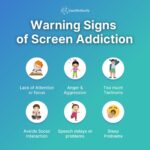“They’re Safe and Quiet… What’s the Problem?”
“Parents often tell us, ‘At least they’re not on the street!’ when defending screen time. But mounting research reveals a hidden danger: play deprivation may harm developing brains more than physical risks ever could.”
— Dr. Amina Khan, WellChild Haven Developmental Paediatrician
A 2024 Wake-Up Call:
- 78% of children now play outdoors < 1 hour/day (Global Play Alliance)
- Play deficits correlate more strongly with anxiety than poverty or family stress (JAMA Pediatrics)
6 Signs Your Child Is Play-Deprived
(Not just “bored” – neurologically undernourished)
- Scripted Play Only
Can’t create original games (“I’m bored!” without screens) - Fear of Unstructured Time
Panics when schedule has gaps - Social “Blueprint” Gaps
Struggles to negotiate rules, take turns, or resolve conflicts - Risk Aversion
Refuses climbing, new foods, or messy activities - Emotional Flashpoints
Minor frustrations trigger meltdowns - Imitation Over Imagination
Only recreates YouTube/TV characters
Key Insight: Play is the “work” of childhood – where brains wire resilience, creativity, and emotional IQ.
Why Screens Can’t Replace Real Play
| Brain Benefit | Authentic Play Provides | Screens Mimic Poorly |
|---|---|---|
| Executive Function | Negotiating fort rules | Following app instructions |
| Emotional Regulation | Handling scraped-knee shock | Distraction from feelings |
| Neuroplasticity | Balancing on uneven logs | Swiping predictable paths |
The Science:
- Dopamine vs. Serotonin: Screens spike stress hormones; play builds calm-focused serotonin (NeuroImage 2023)
- Sensory Integration: Mud, wind, and textures build neural networks no app can replicate
Your Play Prescription: Age-Based Solutions
Toddlers (1-3 yrs)
- Goal: Sensory exploration
- Rx: Daily “no-cleanup zones” (shaving cream art, bean bins)
- WellChild Tip: “Use laundry time! Let them sort socks – it’s pattern-matching play.”
Children (4-10 yrs)
- Goal: Social negotiation
- Rx: Unsupervised play dates (zero adult intervention)
- WellChild Kit: “Conflict Resolution Cards” for peer arguments
Teens (11+ yrs)
- Goal: Identity testing
- Rx: Risky-but-safe challenges (cooking dinner, DIY projects)
- Script: “What’s one thing you want to build/fix this month? I’ll fund materials.”
When Play Gaps Need Professional Help
WellChild Haven’s Play Therapists intervene if your child:
- Has never engaged in pretend play (age 3+)
- Panics without constant entertainment
- Hurts others during play
Our Unique Approach:
- Play Nutrition Assessment
Audits play types missing in their “diet” (sensory, social, risky, etc.) - Play Scaffolding Plans
Gradual exposure therapy for play anxiety - Parent Co-Play Training
How to play WITHOUT directing (most adults need coaching!)
“Our daughter only knew how to reenact cartoons. After 8 play therapy sessions, she invented an elaborate ‘dinosaur vet’ game with original characters!”
— James L., father of 6-year-old
Rebuild Your Child’s Play Brain
Free Starter Kit:
???? [Download: *”30 Play Prompts for Screen-Weaned Kids”*]
(Includes “boredom buster” ideas + sensory bin recipes)
Deep-Dive Support:
???? [Book a Play Nutrition Consultation]
*$145 | Covered by HSA/FSA*
For Schools/Churches:
???? [Inquire About Our Play-Based Curriculum Training]
Faith Perspective
*“Jesus modeled playfulness – welcoming children amidst ‘important’ work (Mark 10:14). Play cultivates God-given creativity and community.”*
— WellChild Haven Spiritual Care Team
Footer Note:
WellChild Haven’s play therapy program is directed by Dr. Rafael Soto (OTD, Play Therapy Certified). 92% of families report improved emotional regulation within 12 weeks.
Categories: Child Development, Play Therapy, Mental Health
Tags: play deprivation signs, screen time alternatives, child play therapy, imaginative play loss



